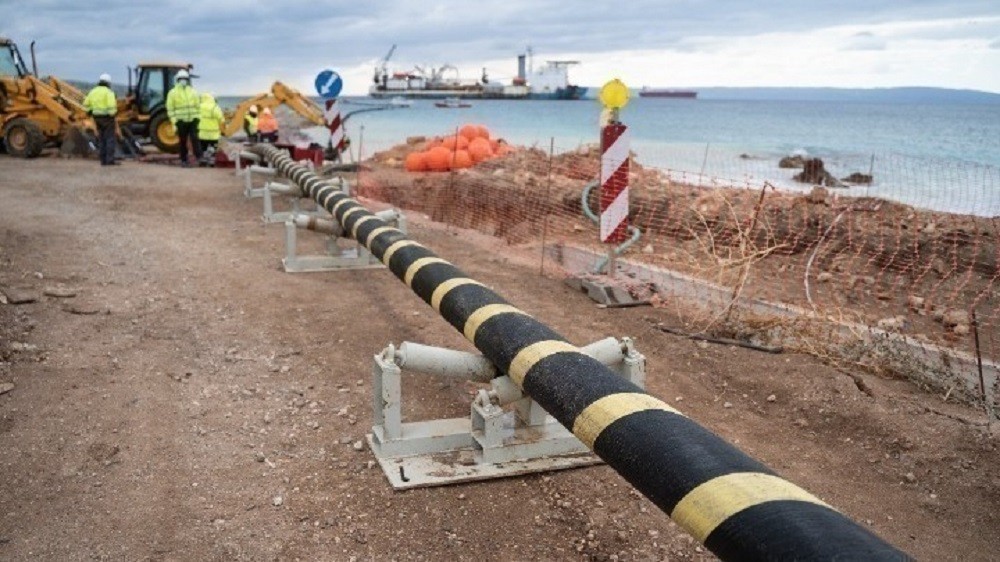
Great expectations for Greece at the Annual Meetings of the IMF and the World Bank
By Lena Argiri*
It’s that time of the year, when high level officials, prominent economists, civil society representatives and journalists from all around the world, gather in Washington DC for the Annual Meetings of the IMF and the World Bank. Policy making at its best, at the world’s most powerful city.The decisions here, determine international economic developments, for the months to come.
But there seems to be one slight exception to this rule, Greece.The Greek issue has been extremely high on the agenda, formally or informally, the last seven years. Namely, since the be-ginning of the crisis. But absolutely no decision has been made so far. Now, the creditors, who happen to be among the most popular participants, will have another chance to save the day. But the question is, are they willing to do so?
The Europeans have fought shy of delivering the long promised debt relief and the IMF has explained that without it, it can not be part of the Greek program. The setting is unchanged. The creditors quarrel over Greece. And Greece, stranded in the crossfire, longing for some catalytic developments. The expectations for a different approach this time are high. Mainly because the dynamic that was created last May, in regard to the easing of the Greek debt, gave new hopes to the Greek government.
Will the two sides try to find common ground during the Annual meetings or they will just reaffirm their disagreement? Will, this time, logic prevail over politics? Germany, who leads the so called hardliners on the negotiating table, does not want to commit to debt restructuring before elections in 2017. The IMF, which has made a strong case for debt relief, will have to explain again to the Europeans, that by delaying the final debt decisions, they can not make the problem disappear. Without easing, the debt projections are dull. The country’s current debt to GDP ratio is the highest in the eurozone, exceeding 170 percent of national output.
So, the pressure will be back on, for both sides. And for Greece as well. Because it is now clear that the longer it takes for the Greek government to implement the agreed reforms, the easier it becomes for the creditors to start the blame game, accusing Greece for all the delays and postponements. Nobody wants to imagine what will happen, if Greece has to face again funding problems in the near future. As Klaus Regling ESM’s boss said, the 2,8 billion euros will be avail-able only by the end of October. He explained that, if that deadline comes without the completion of all the milestones, Greece will not be able to claim the installment.
As the Greek Prime Minister Alexis Tsipras said, speaking a few days ago at an annual press conference, Greece can become competitive again, only if the dispute between the creditors, over how to lower the country’s debt burden, is resolved. He added that only then, the European Cen-tral Bank will decide to include Greek government bonds in its asset purchase program. As Mario Draghi, ECB’s President has said “The European Central Bank will buy Greek government notes at a later stage, after progress has been made in the analysis of debt
sustainability.”
In the meantime, on the sidelines of the official developments, a new alliance might be forming. Just on Friday the ECB’s Executive Board member Benoit Coeure, urged all parties to find a cred-ible solution to ensure debt sustainability. Some analysts who read between the lines, said that the ECB might be more willing now, to join the IMF in pressing Brussels in that direction.
Mr Tsipras, repeated that, Greece has gone through such a harsh adjustment, that simply can not wait any more. And he emphasized that Greek people deserve a fair solution of the debt problem. But there is also another issue of major importance. The agreed targets for the primary surplus after 2018.
Brussels made it clear last week, that they are not willing to discuss a more realistic primary sur-plus target and they insisted that the agreed measures should be implemented, without exceptions. The IMF has been vocal about these targets and has repeatedly said that they are completely unrealistic, because they require more spending cuts and increased taxes, than the Greek society can handle. Experience has proven that only a few countries have been able to achieve and maintain such high primary surpluses of 3,5% of GDP, in the long term. This will be another difficult discussion, that the IMF and the Greek government will eventually have to make with the European creditors.
The Greek delegation that is coming to town, will have to demonstrate during the annual meetings, that it is committed to continue implementing all the necessary reforms without excuses, exceptions and delays. Also it must be ready to make the case, that without debt relief and lower fiscal targets, all the new sacrifices will prove meaningless. It goes without saying that, admitting that your creditors are also burdened with debt, which means that they are less likely to consider a large reduction, as the Deputy Prime Minister Giannis Dragasakis said, does not strengthen your position. Especially at this point of time.
The IMF spokesperson stated recently, that he is not aware of any scheduled upcoming meeting about Greece. That sounded like another attempt by the IMF, to belittle the Greek issue, which often in the past has overshadowed the agenda of the meetings. European sources insist though, that the so called “Washington Group” will convene to discuss all the latest on Greece. But that is simply not enough. Because discussing the latest doesn’t necessarily lead to the path forward. And it is about time that Greece moves forward.
- Washington DC Correspondent, Greek Public TV ERT via HuffingtonPost.com

